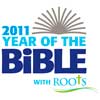To mark the 400th anniversary of the Authorised Version of the Bible in 1611, Malcolm Guite, an expert on the language of the period, has written a series of sermon notes on well-loved passages.
We do hear them speak in our tongues 
Acts 2.1-11
The feast of Pentecost has been rightly called the birthday of the Church, but it could also be called ‘the feast of translation’. Indeed translation, in all the deepest senses of that term, goes right to the heart of the Christian gospel.
The Holy Spirit is there at the beginning of creation as God breathes upon the waters, and there at the beginning of salvation as Mary is filled with the Holy Spirit and conceives Christ, and there at the beginning of the new creation as, ‘by the power of the Holy Spirit’, God raises Christ from the dead. But on Pentecost we celebrate that special gift of the Spirit without which we could not understand or proclaim these other mysteries: the gift of tongues, of expression, of understanding. At the heart of these gifts is the gift of translation.
Many tongues
For the translators of the King James Bible, Pentecost was the divine blessing that answered and undid for ever the curse of Babel, and they dwelt on the strange parallels and antitheses between the two stories. The tower of Babel presents us with an image of arrogant human power, monoglot, monocultural, a triumphalist technology stamping its uniform logo on everything. God’s response is not only to break the tower, but also the linguistic monopoly, and to scatter abroad into the world unique languages with their own ways of describing the world.
While the ‘curse’ of Babel leads to ‘confusion of tongues’, it is also a blessing that leads to rich diversity and breadth of perspective. So when God comes to our aid at Pentecost and undoes the confusion of Babel, it is not by eliminating all the different languages and restoring a single tongue, but by honouring and gracing every language with his meaning, by allowing himself and his gospel to be translated into every language.
For Christians there is to be no master tongue, no master race, no political or cultural privilege for one language over another, but the gospel is to make its home in every nation under heaven so that we can hear the mysteries that angels longed to hear, ‘in our own tongue wherein we were born’.
The one great translation
This affinity with translation, indeed this understanding of translation as a kind of grace, is distinctively Christian. Islam, for example, declares the Qur’an to be untranslatable, and teaches that the devout of every nation must learn Arabic if they want to hear the authentic word of Allah. But translation is of the essence of the Christian faith because, for Christians, the Word of God has already made the greatest translation of all. The eternal Word, whom we could never know or even apprehend, has translated himself into our flesh and blood, translated eternity into time, and translated love into action.
For Christ’s followers, the sayings of Jesus, the stories of his life enshrined in the Scriptures, have their meaning only when they are translated into the realities of everyday life, into ordinary conversation and action. But God’s great self-translation in Christ’s incarnation is itself the beginning of that great translation of all our lives, which he achieves for us in his death and resurrection.
For Christians, the very meaning of death itself must henceforth be translated in a new way. John Donne, one of the first generation to dwell in and preach from the Authorised Version, put it this way:
All mankind is of one author, and is one volume; when one man dies, one chapter is not torn out of the book, but translated into a better language; and every chapter must be so translated; God employs several translators; some pieces are translated by age, some by sickness, some by war, some by justice; but God’s hand is in every translation, and his hand shall bind up all our scattered leaves again for that library where every book shall lie open to one another. (John Donne, Meditation 17)
That final image of all of us, full of truth and meaning, bound together in love but richly open to one another like open books, comes from an imagination immensely enriched by the beautiful open book that is the King James Bible.
Pentecost tells the story of translation as a divine and instantaneous gift, but what we celebrate this year is the good stewardship of all those gifts of intelligence and insight nurtured and deployed by the dedicated group of scholars who gave us the gift of the Authorised Version. At their head was John Donne’s older contemporary and friend Lancelot Andrewes, the great preacher and scholar whose life continues to inspire so many. It was said of Lancelot Andrewes that he knew and loved so many languages that ‘he could have served as interpreter general at the confusion of tongues’, and in a way, that is exactly what he did!
Malcolm Guite, poet, musician and priest, is Chaplain of Girton College, Cambridge. His latest book, Faith, Hope and Poetry; theology and the poetic imagination, has recently been published by Ashgate.
You are welcome to reproduce this article within your church or organisation.
Please ensure that the copyright line 'This resource is taken from www.rootsontheweb.com and is copyright © ROOTS for Churches Ltd 2011.' is included.
You can find out more about the Year of the Bible on the website www.2011trust.org.
 Go to index of all ROOTS
Go to index of all ROOTS
Year of the Bible 2011 material